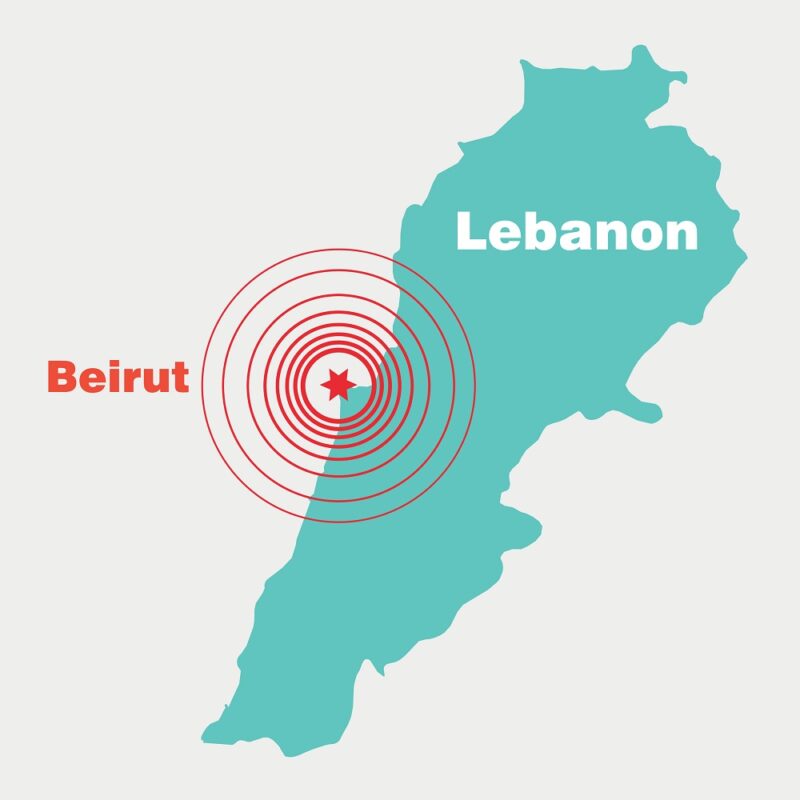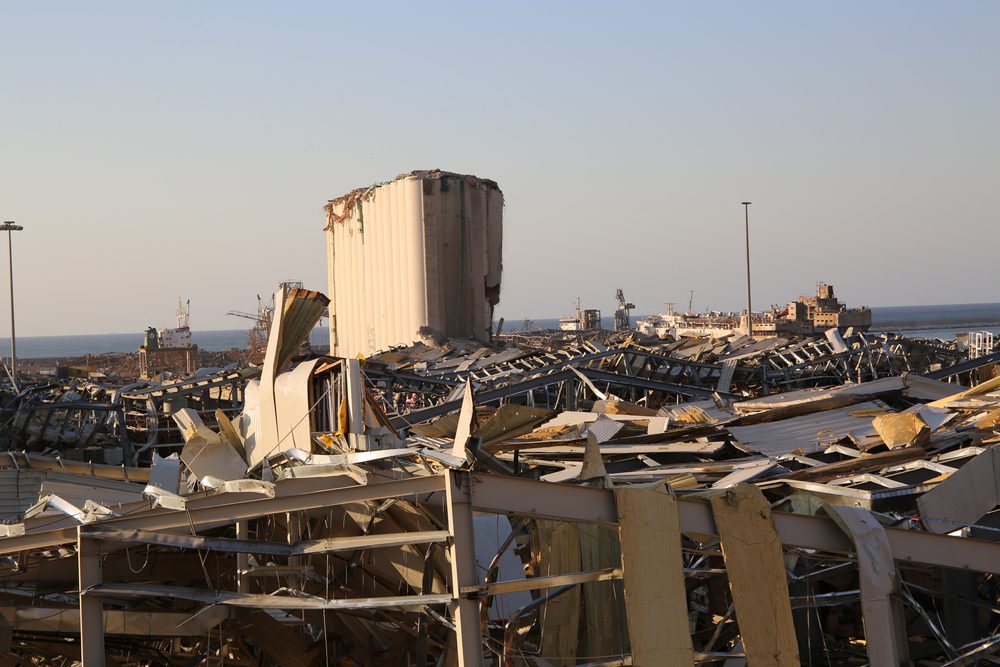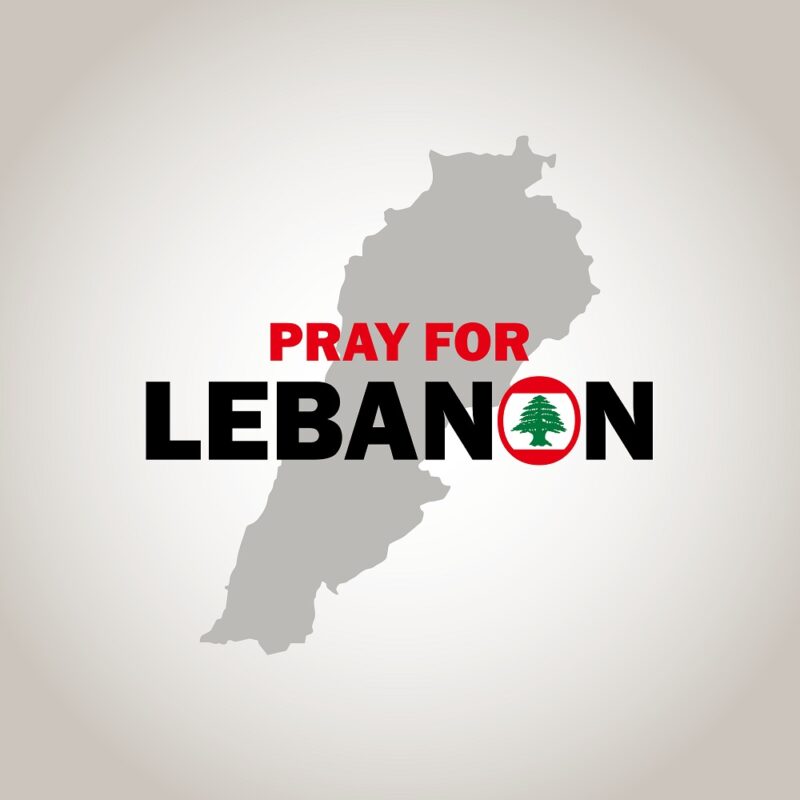
Lebanon was already dealing with a financial crisis even before the explosion that hit Beirut on Tuesday, but now the consequences are expected to be even more devastating. The explosion killed 145 people and injured about 5,000 others, while dozens are still missing. According to Beirut’s governor Marwan Aboud, about 300,000 people are now homeless after this explosion.
He told the BBC: “Beirut needs food, Beirut needs clothes, houses, materials to rebuild houses. Beirut needs a place for the refugees, for its people.”
The blast took place in Beirut’s port area where were being stored about 3,000 tons of explosives. Moreover, the explosion also destroyed Beirut’s primary grain silo, which was actually the largest grain storage facility in the whole country. According to Reuters, the country is left with less than one month of grain resources.
“Beirut is crying, Beirut is screaming, people are hysterical and people are tired,” filmmaker Jude Chehab told the BBC, added that people want justice.
Chadia Elmeouchi Noun, a Beirut resident which is currently in hospital, stated: “I’ve known all the time that we are led by incompetent people, incompetent government […] But I tell you something – what they have done now is absolutely criminal.”
Even before the explosion, Lebanese residents were struggling to put food on the table because of a financial crisis than started in 2019. People are dealing with years and years of government corruption, the Lebanese pound dropped in value since October 2019, and the food prices (meat, bread) have only gone up since then.
“It’s an economic crisis, a financial crisis, a political crisis, a health crisis, and now this horrible explosion,” Tamara Alrifai, spokesperson for the UN Relief and Works Agency for Palestine Refugees in the Near East, told Reuters. “So there are many layers to what is happening in Lebanon that is constantly testing the ability of the Lebanese and the refugees who live in Lebanon to be resilient.”

An explosion during a pandemic
If the COVID pandemic wasn’t enough on its own, as Lebanon was already bearly coping with the number of coronavirus cases on the rise, the explosion came in a very sensitive time. Demonstrations against the government are a daily occurrence in this country, as it is now going through a devastating economic crisis, that is actually the worst period Lebanon had since the 1975-1990 civil war.
“We have lived generations where the same entrenched political class have been in power,” said Charlotte Karam, an associate professor at the American University of Beirut. “I blame the history, the futile history of the same political class, the same structures, repetitively taking control of Lebanon and milking Lebanon.”
Residents are lacking safe drinking water and have limited access to public health care, plus they have to deal with power cuts on a daily basis. Moreover, 45% of the population lives below the poverty line, while 33% are unemployed, and about 50% can’t afford to put food on the table.
President Aoun stated that “the government would release 100bn lira (£50.5m; $66m) of emergency funds,” but the consequences of the explosion on the country’s economy are expected to be long-lasting, as 85% of Lebanon’s cereal reserves are now gone.
“The effects are severe. The harbor is destroyed, and the harbor was one of the main gates for imported food. That becomes inoperative for the next weeks, even maybe months,” Hans Bederski, national director of the refugee aid group World Vision, told Reuters. “And that will affect all people, not just in Beirut but also the rest of Lebanon, no matter whether Lebanese citizens or refugees.”

The exact cause of the explosion is still unclear, but President Michel Aoun believes that everything happened because 2,750 tons of ammonium nitrate (used in fertilizers and bombs) have been stored improperly for six years without any safety measures in a warehouse.
The explosion was so powerful that some people assumed Beirut had experienced a nuclear detonation, its power was at least two orders of magnitude greater than that of the GBU-43/B Massive Ordnance Air Blast, known as the “Mother of All Bombs.”
Beirut’s governor even compared this devastating explosion to the atomic bombs that destroyed Hiroshima and Nagasaki during World War II. “In my life, I haven’t seen destruction on this scale,” he added.
“I lived through the war and (tough) circumstances, but I never saw something like this before,” baker Hekmat Kaai said. “I am wondering how cheap a human being is in this country. Where are we going? Beirut was completely destroyed in an instant.”
Kingston Reif, a disarmament and threat-reduction expert at the Arms Control Association, explained that even if this explosion can be comparable to some of the nuclear weapons used by the U.S. “this does not at all mean that the explosion would have felt like the detonation of the lowest-yield B61 variant.”
He also added that “nuclear explosion would have been far worse, as it would include more extreme thermal and also radiation effects,” adding that “nuclear weapons are not just another weapon for a reason.”























